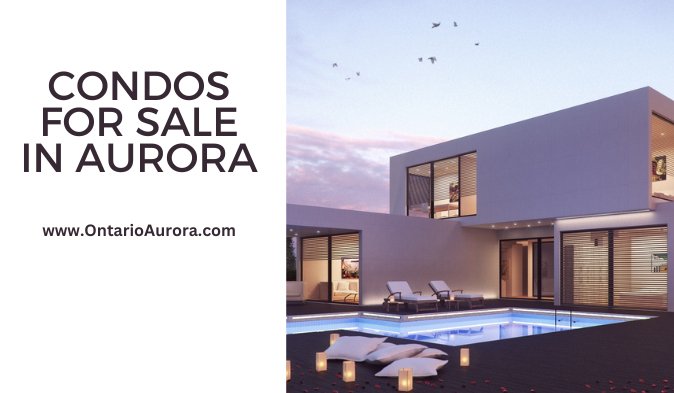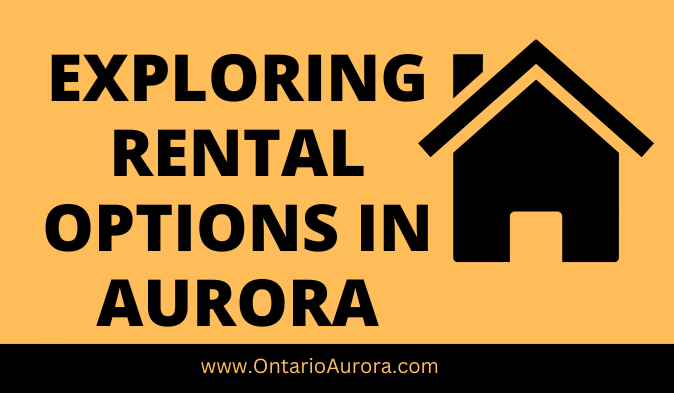
Condos For Sale In Aurora: A condominium, commonly known as a “condo,” is a type of housing where individual units are owned separately within a larger property complex.
Condo owners jointly own common areas and amenities, such as parking lots, swimming pools, or gyms, which are maintained through dues paid to a board.
Condos offer a blend of private homeownership and shared community living, distinguishing them from apartments, co-ops, or townhouses.
They are popular for first-time buyers, those looking to downsize, or individuals seeking a more affordable housing option compared to traditional houses.
Condos provide benefits like less maintenance, affordability, shared amenities, and a sense of community, but they also come with considerations such as HOA fees, restrictions, limited personalization, and potential resale challenges.
The key difference between a condo and an apartment is ownership, where a condo is something you own, while an apartment is something you rent.
Condo ownership involves a legal document called the declaration of covenants, conditions, and restrictions that sets regulations for owners, defines acceptable use of units, and outlines the development management by a homeowners’ association.
Condo fees cover costs like building insurance, shared utilities, and maintenance reserves, with the potential for fee increases and additional assessments for major maintenance needs.
Condos offer advantages like access to amenities, security services, and a sense of community, making them suitable for various lifestyles and preferences.
Benefits Of Owning A Condo
Owning a condo comes with several benefits that make it an attractive housing option for many individuals. Some key advantages of owning a condo include:
Low Maintenance: Condos require less maintenance compared to traditional homeownership, as outdoor repairs and upkeep are typically managed by the homeowner’s association (HOA).
This is beneficial for those who prefer not to deal with time-consuming maintenance tasks like lawn care or roof repairs.
Access to Amenities and Facilities: Condo living provides access to shared amenities such as fitness centers, swimming pools, party rooms, and green spaces.
These amenities promote a community-centric lifestyle, enhance social interactions, and contribute to the property’s overall value, offering residents an enriched lifestyle without the burden of individual maintenance.
Security Features: Condominiums often offer enhanced security features like secured entrances, gated communities, surveillance cameras, and on-site security personnel.
These measures provide peace of mind by deterring criminal activities and ensuring the safety of residents and their belongings, especially for those who live alone or travel frequently.
Community Living: Condo living fosters relationships with neighbors, encourages community events and activities, and promotes a sense of belonging.
This is particularly beneficial for individuals new to an area or looking to expand their social circle, as shared amenities facilitate interactions and shared resources among residents.
Location and Accessibility: Many condos are strategically located in prime areas close to workplaces, shopping centers, schools, and essential services.
This centrality reduces the need for long commutes, provides access to public transportation options, and enriches the living experience with proximity to cultural landmarks, parks, and entertainment venues.
Cost Efficiency: Condos offer cost-effective living solutions, with purchase prices often lower than single-family homes, especially in urban environments.
Shared responsibility for maintenance and repair costs can lead to significant savings for residents, making condos a financially attractive option for many buyers.
Factors To Consider Before Buying A Condo
Before buying a condo, it is crucial to consider several key factors to make an informed decision. Some of the most important factors to evaluate include:
- Location: The neighborhood where the condo is situated significantly impacts your quality of life, convenience, and the property’s value. Consider factors like proximity to work, schools, shopping centers, healthcare facilities, public transportation, and overall safety. Visit the area at different times to assess noise levels, traffic patterns, and the general atmosphere.
- Condo Association: The homeowners’ association (HOA) is vital in managing the condo community. Review HOA documents to understand the financial health, rules, regulations, and potential legal issues. If possible, attend an HOA meeting to gauge how the community is managed and ensure it aligns with your lifestyle.
- Amenities and Maintenance: Evaluate the amenities offered by the condo, such as fitness centers, pools, party rooms, and concierge services. Assess whether these amenities justify the associated costs, usually in the form of higher HOA fees. Check the condition and cleanliness of amenities as they reflect the management quality of the HOA.
- Long-Term Suitability: Consider your long-term needs and lifestyle preferences. Ensure the condo meets your future requirements, such as space for expanding your family or setting up a home office if you plan to work from home. Evaluate the neighborhood’s long-term prospects to ensure it aligns with your expectations.
- Financial Considerations: Understand the financial aspects of condo ownership, including mortgage interest rates and back-end costs like HOA fees, insurance, and taxes. Be aware of potential increases in HOA fees, special assessments for repairs, and the impact on your monthly budget. Factor in all costs to determine the affordability of owning a condo.
- Resale Value: Consider the potential resale value of the condo by examining factors like the location, building condition, availability and condition of amenities, reputation and financial health of the HOA, and real estate market trends in the area. A well-located, well-maintained condo in a thriving community is likely to hold its value or appreciate over time.
Common Mistakes To Avoid When Buying A Condo
When buying a condo, it’s essential to be aware of common mistakes to avoid to ensure a smooth and successful purchase. Here are some of the most common mistakes to steer clear of:
Falling for Low Condo Fees: Low condo fees may seem attractive, but they often cover only basic maintenance. Unexpected repairs or major maintenance needs can lead to additional special contributions, potentially costing thousands of dollars.
It’s crucial to understand the condominium’s budget allocation for unforeseen events and major repairs.
Not Checking Building Rules or Declaration of Co-Ownership: Investing in a condo means investing in a lifestyle. Understanding the rules of cohabitation outlined in the declaration of co-ownership is vital.
These rules regulate the use of the building and common areas, so knowing your responsibilities and restrictions is important before purchasing.
Neglecting Pre-Purchase Inspection: Just like with a house, it’s essential to have a condo inspected before finalizing the purchase.
A thorough inspection can reveal construction or maintenance issues, ensuring you are aware of any potential problems and can negotiate the purchase price or request adjustments if needed.
Not Comparing with the Market: It’s crucial to compare the condo you’re interested in with similar properties in the market. Real estate brokers can provide valuable insights into market conditions and help you determine if the asking price is reasonable.
Understanding the condo’s market value ensures you make an informed decision.
Trusting Verbal Agreements: Verbal agreements should always be written to avoid misunderstandings or disputes. A written contract with all agreed-upon terms provides clarity and protection for both the buyer and the developer, ensuring that all aspects of the deal are documented and agreed upon.
Having Zero Clue About Rules and Regulations: Ignorance of the condo community’s rules and regulations can lead to unintentional violations.
It’s crucial to thoroughly read and understand the building’s house rules and regulations to avoid infringing on any guidelines and to know when to seek assistance from the property manager.
By being mindful of these common mistakes and taking proactive steps to avoid them, prospective condo buyers can navigate the purchasing process more effectively and make informed decisions that align with their needs and preferences.
Tax Implications Of Owning A Condo In Aurora, Ontario
The tax implications of owning a condo in Aurora, Ontario, are based on the assessed value of the property and the local tax rates.
Property tax in Aurora is calculated by multiplying the property’s assessed value by the final property tax rate for the year.
The assessed value is determined by the Municipal Property Assessment Corporation (MPAC) every four years, considering factors like market price.
It’s important to note that the assessed value may differ significantly from the property’s market value. Property tax funds city services like police, fire departments, public transit, and education.
Additionally, owning a condo in Aurora may involve paying HOA fees to cover shared amenities or common areas within the condominium complex.
These fees are typically distributed among all condo owners as part of the community’s maintenance costs.
Financing Options For Buying A Condo In Aurora, Ontario
When considering financing options for buying a condo in Aurora, Ontario, there are several choices available to prospective buyers. Here are some common condo financing options based on the provided sources:
- Conventional Loans: Conventional loans are a popular choice for financing condo purchases. These loans are not government-backed and typically have stricter credit requirements but offer competitive interest rates for buyers who meet the criteria. Conventional loans can finance condos that meet the lender’s guidelines.
- FHA Loans: FHA loans are backed by the Federal Housing Administration and are a viable option for condo financing, especially for first-time buyers. These loans offer more flexible credit requirements and lower down payment options compared to conventional loans, making them accessible to a broader range of buyers.
- VA Loans: VA loans are specifically designed for members of the military, veterans, and eligible surviving spouses. These loans are backed by the Department of Veterans Affairs and provide favorable terms and benefits for those who have served in the military. VA loans can be used to finance condo purchases in Aurora.
- USDA Loans: USDA loans are another option for financing a condo purchase in Aurora. These loans are backed by the U.S. Department of Agriculture and can be used to buy condos with zero down payment, making them an attractive choice for buyers in eligible rural areas. USDA loans offer competitive rates and flexible credit requirements.
- Private Mortgage Lenders: In some cases, buyers may consider private mortgage lenders for condo financing. Private lenders offer alternative financing options for buyers who may not qualify for traditional loans or who prefer more personalized lending solutions. Private mortgage lenders can provide flexibility in terms of loan requirements and approval processes.
By exploring these financing options and working with experienced mortgage professionals, prospective condo buyers in Aurora, Ontario, can choose the most suitable loan program that aligns with their financial situation, credit profile, and long-term homeownership goals.
Common Amenities In A Condo Complex In Aurora, Ontario
Based on the provided sources, common amenities in a condo complex in Aurora, Ontario, include:
- Fitness and Wellness Centers: High-end condos typically offer fitness and wellness centers with state-of-the-art equipment, spacious interiors, full-service spas, treatment rooms, and high-end designs. These amenities cater to residents looking for convenient access to fitness facilities and wellness spaces within the complex.
- Swimming Pools: Condo complexes often feature stunning swimming pools that provide residents with water activities for fun, relaxation, and stress relief. These pools come in various shapes and sizes, accompanied by features like hot tubs, changing rooms, poolside lounges, and bars, creating a resort-like ambiance within the complex.
- Outdoor Spaces: High-end condos in Aurora may provide fresh, open spaces like rooftop gardens and outdoor areas where residents can enjoy greenery, fresh air, and scenic views. These outdoor spaces offer residents a tranquil environment to relax, unwind, and enjoy the outdoors without leaving the complex.
- Shared Facilities: Condo complexes may include shared facilities such as lounges, playrooms, libraries, function rooms, business lounges, and game rooms. These areas provide residents with various options for entertainment, relaxation, and socializing within the complex, catering to different preferences and lifestyles.
- Security and Safety Features: Ensuring residents’ safety is a priority in condo complexes, leading to the inclusion of security measures like spacious concierge areas, security cameras, alarm systems, secure package delivery processes, safe parking spaces, strict visiting policies, and 24-hour security. These features provide residents with peace of mind and a sense of security within the complex.
By offering a range of amenities that enhance residents’ quality of life, promote convenience, and foster a sense of community, condo complexes in Aurora aim to create a comfortable and enjoyable living environment for their residents.
How Does Owning A Condo Differ From Owning A House In Aurora, Ontario
Owning a condo in Aurora, Ontario, differs from owning a house in several key aspects:
- Property Type: A condo is a single unit within a community or multi-unit building, which can be an apartment, townhouse, or occasionally detached. In contrast, owning a house typically involves a standalone structure with its own land and boundaries.
- Maintenance Responsibilities: Condo owners jointly contribute to expenses like the upkeep of common areas (courtyards, hallways, pools, gyms) by paying monthly maintenance fees. This means that many maintenance tasks and costs are managed for condo owners, whereas house owners are responsible for all maintenance and repair costs themselves. There are some more eye opening condos available for sale.
- Costs and Affordability: Condos tend to cost less upfront than houses, making them a more affordable option for buyers, especially in areas like Aurora where house prices are high. Condos also have lower property tax rates and may offer more affordable entry points into the real estate market compared to houses.
- Amenities and Lifestyle: Condos often provide access to amenities like fitness centers, swimming pools, party rooms, and outdoor spaces within the complex. This can offer residents a convenient and luxurious lifestyle that may not be easily achievable with a standalone house. Additionally, condos are often located in urban areas close to restaurants and shops, providing a vibrant living experience.
- Investment Potential: Houses are often seen as better long-term investments, especially as transit expands to the area, potentially increasing their value over time. On the other hand, condos can be more affordable and may offer rental income opportunities, making them attractive for investors looking to enter the real estate market.
By understanding these differences, prospective buyers in Aurora, Ontario, can make informed decisions based on their budget, lifestyle preferences, and long-term investment goals when choosing between owning a condo or a house.
Disadvantages Of Owning A Condo In Aurora, Ontario
Owning a condo in Aurora, Ontario, comes with certain disadvantages, as highlighted in the provided sources:
- Less Privacy: Condo living may entail less privacy compared to owning a standalone house. Residents in condos often share walls, floors, and ceilings with neighbors, which can lead to increased noise levels and reduced privacy in some units.
- Maintenance and Repair Control: Condo owners may have limited control over when maintenance and repairs are conducted in the building. The condominium corporation or management may dictate the timing and execution of maintenance tasks, which can be inconvenient for individual owners.
- Possibility of Special Assessment Charges: Condo owners may face unexpected costs in the form of special assessment charges for major repairs or renovations in the building. These charges can be additional financial burdens on top of regular maintenance fees and may not always be predictable.
- Restrictions and Regulations: Condo living often involves adhering to specific rules and regulations set by the condominium corporation. These restrictions can cover areas like noise levels, parking, pet ownership, smoking policies, and even the style and color of doors and window coverings, limiting some aspects of personal freedom and customization.
- Limited Space: Condo units typically offer less space compared to standalone houses, which can be a disadvantage for individuals or families requiring more room. Limited space may impact storage options, living arrangements, and overall comfort within the condo unit.
- Community Dynamics: Living in a condo community means interacting with a diverse group of neighbors, which can sometimes lead to challenges in reaching a consensus on various issues. Differences in personalities and preferences among residents can make decision-making and community living more complex.
By considering these disadvantages, prospective condo buyers in Aurora, Ontario, can make informed decisions based on their lifestyle preferences, financial situation, and tolerance for the potential drawbacks associated with condo ownership.
Condos For Sale In Aurora, Ontario
In Aurora, ON, there are 55 condos for sale currently. The prices range from $549,000 to $12,905,000. You can narrow down your search by sorting listings by price, square footage, bedrooms, bathrooms, year made, and other factors.
Sort Aurora, ON condos for sale by price drops in the last six months as well, that way you never miss a deal. Want to find condos for sale close to where you are? You can use the map view to find nearby flats for sale.
Frequently Asked Questions (FAQs) About Condos for Sale in Aurora, Ontario
What is the typical price range for condos in Aurora, Ontario?
The prices of condos in Aurora, Ontario, vary depending on factors such as location, size, amenities, and condition. Currently, condos for sale in Aurora range from $549,000 to $12,905,000.
What amenities are commonly found in condo complexes in Aurora, Ontario?
Common amenities in condo complexes in Aurora include fitness and wellness centers, swimming pools, outdoor spaces like rooftop gardens, shared facilities such as lounges and game rooms, and security features like surveillance cameras and 24-hour security.
What are the advantages of owning a condo in Aurora, Ontario?
Owning a condo in Aurora offers advantages such as low maintenance, access to amenities, enhanced security features, community living opportunities, and cost efficiency compared to single-family homes.
What factors should I consider before buying a condo in Aurora, Ontario?
Before buying a condo in Aurora, it’s important to consider factors such as location, condo association rules and regulations, amenities and maintenance costs, long-term suitability, financial considerations, and resale value.
What are some common mistakes to avoid when buying a condo in Aurora, Ontario?
Common mistakes to avoid when buying a condo in Aurora include falling for low condo fees, neglecting pre-purchase inspection, not comparing with the market, trusting verbal agreements without a written contract, and having zero clue about rules and regulations.
What are the tax implications of owning a condo in Aurora, Ontario?
The tax implications of owning a condo in Aurora are based on the assessed value of the property and local tax rates. Property tax funds city services, while condo owners may also need to pay HOA fees for shared amenities and common areas within the condominium complex.
What financing options are available for buying a condo in Aurora, Ontario?
Financing options for buying a condo in Aurora include conventional loans, FHA loans, VA loans, USDA loans, and private mortgage lenders. Prospective buyers should explore these options based on their financial situation, credit profile, and homeownership goals.
How does owning a condo differ from owning a house in Aurora, Ontario?
Owning a condo in Aurora differs from owning a house in aspects such as property type, maintenance responsibilities, costs and affordability, amenities and lifestyle, investment potential, and community dynamics. Understanding these differences can help buyers make informed decisions.
What are some disadvantages of owning a condo in Aurora, Ontario?
Disadvantages of owning a condo in Aurora include less privacy, limited control over maintenance and repairs, possibility of special assessment charges, restrictions and regulations imposed by the condominium corporation, limited space compared to houses, and challenges in community dynamics.
How can I find condos for sale in Aurora, Ontario?
To find condos for sale in Aurora, Ontario, you can search online real estate listings on platforms like realtor.ca, Zillow, or contact local real estate agents who specialize in condominium properties. These platforms allow you to filter listings based on your preferences and budget.
RELATED POSTS
View all



